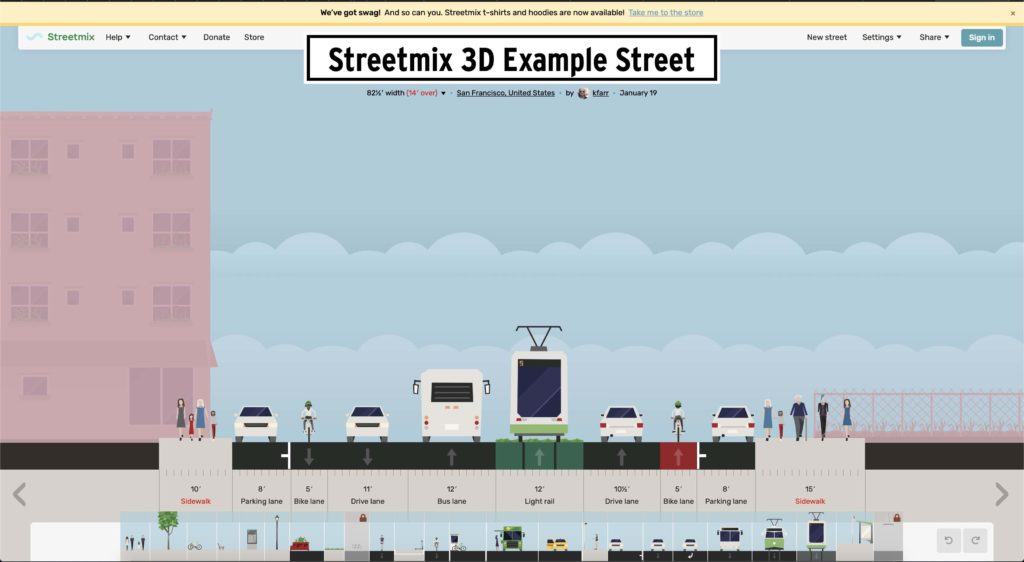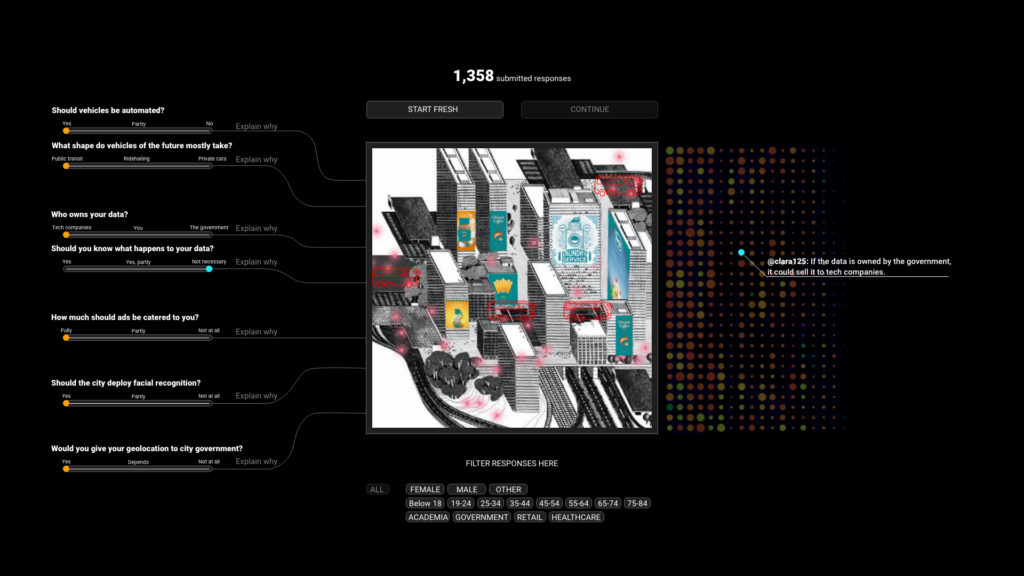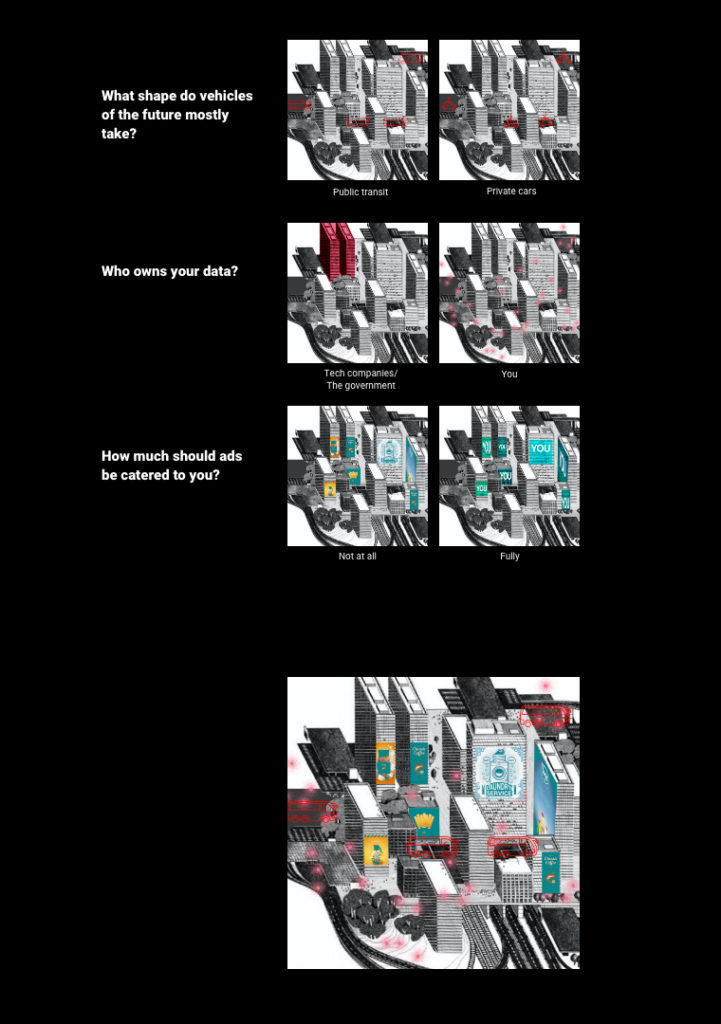Update: 22nd of April (due to progression of project)
Findings on Lebanocracia.org case study
After interviewing users of Lebanocracia.org around the possibility of transforming the platform into an topic based open-discussion, most were reluctant because they didn’t imagine how that could change the close mindedness of Lebanese citizens: they thought that people would share their opinion with little intention of changing it even if other people’s point of view is equally shared.
I decided to speculate on new formats of online discussions and opinion visualization, with the following topic: smart cities and urban technology. “Smart cities” has become a buzz word, and more importantly, most decisions around the future of cities have been made with little regard to citizen’s opinions.
HMW design a platform that mediates civic discussion, while allowing for people to learn and design their future city?
Precedents
There are a number of precedents designed to engage citizens around urban topics. Streetmix is one such platform that aims to better understand preferences of street design. Features of sharing allow users to showcase their ideas and view others’ work on other social media platforms.

The project addresses important issues of accessibility and sustainability, but does not tackle a very sensitive topic. This might be a reason for the limited user engagement. Additionally, it doesn’t provide enough of an incentive for designing/sharing a new street and no call to action.
First prototype
My first prototype emerged out of a visual idea that I had in mind: having people customize their avatar city, while also observing the implications of their decisions through a data visualization of people’s opposing comments (on the right, as an output). My goal was to naturalize civic participation and discussion through playful visualizations.

The questions asked are:
- Should vehicles be automated? (yes, partly, no)
- What shape do vehicles of the future mostly take? (public transit/active mobility, ride hailing, private cars)
- Who owns your data? (tech companies, you, the government)
- Should you know what happens to your data? (yes, partly, not necessarily)
- How much should ads be catered to you? (fully, partly, not at all)
- Should the city deploy facial recognition? (yes, partly, not at all)
- Would you give your geolocation to city government? (yes, depends, not at all)
(with a feature to add a question)

Alexis comments
Below are some of the comments of Alexis:
- The image generation is actually a great way to promote more user engagement because we can see that with memojis, the more customizable an avatar is, the more people use it. She suggested to make the city even more customizable.
- She also pointed out that I needed to make the visual correlation between inputs (left) and opposing opinions (right) more visually apparent. For now it seems messy.
- The last point was to focus on the call to action, or how to make the use of the platform beneficial for users. How can they move past the platform, and engage in smart cities discussion beyond the interface?
I would love to hear more thoughts and comments. I am currently in the process of building the interface (for now it is still just a mockup)!
Thank you!
Romy El Sayah
1 reply on “Project Proposal: visual discussion platform”
Romy, I think talking about the shape of the city is a fascinating and perhaps very constructive way of avoiding traditional political positioning in Lebanon. Like Alexis, I think the idea of producing images that can be items for discussion is a powerful one. I wonder whether the way you’re presenting these questions is a bit too constrained – you’re asking mostly about vehicles and surveillance; is there a broader range of topics you can include? Could people prioritize which topics they found most important, as in Lebanonacracia? Is there some way of including some more open ended input – what do you imagine your city looking/feeling like? What do you most want/least want?